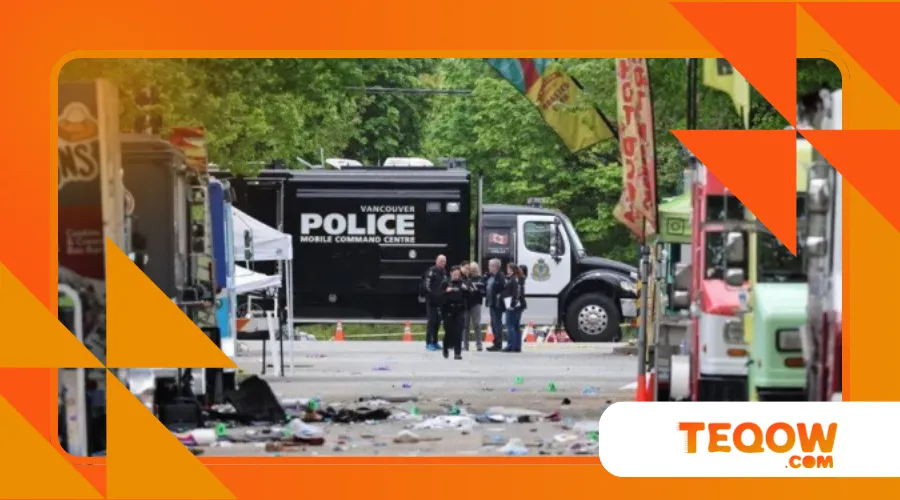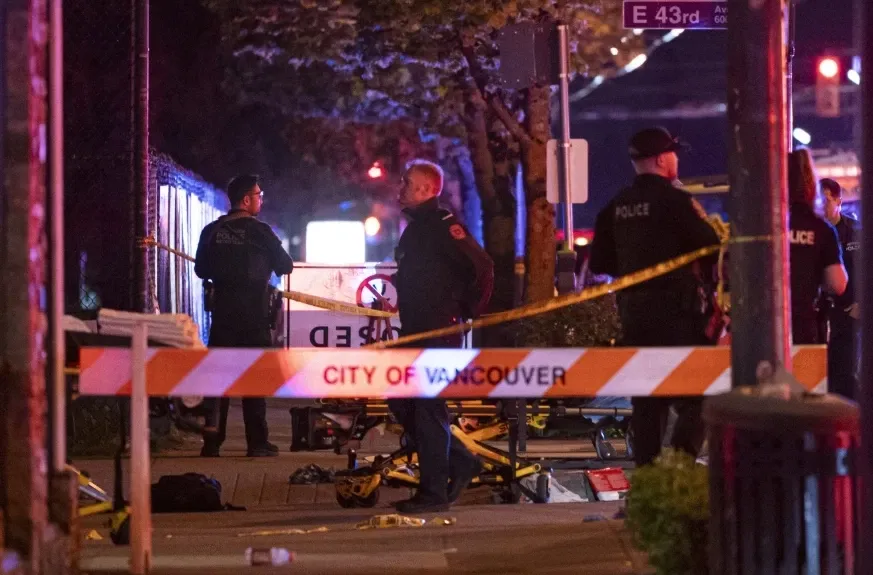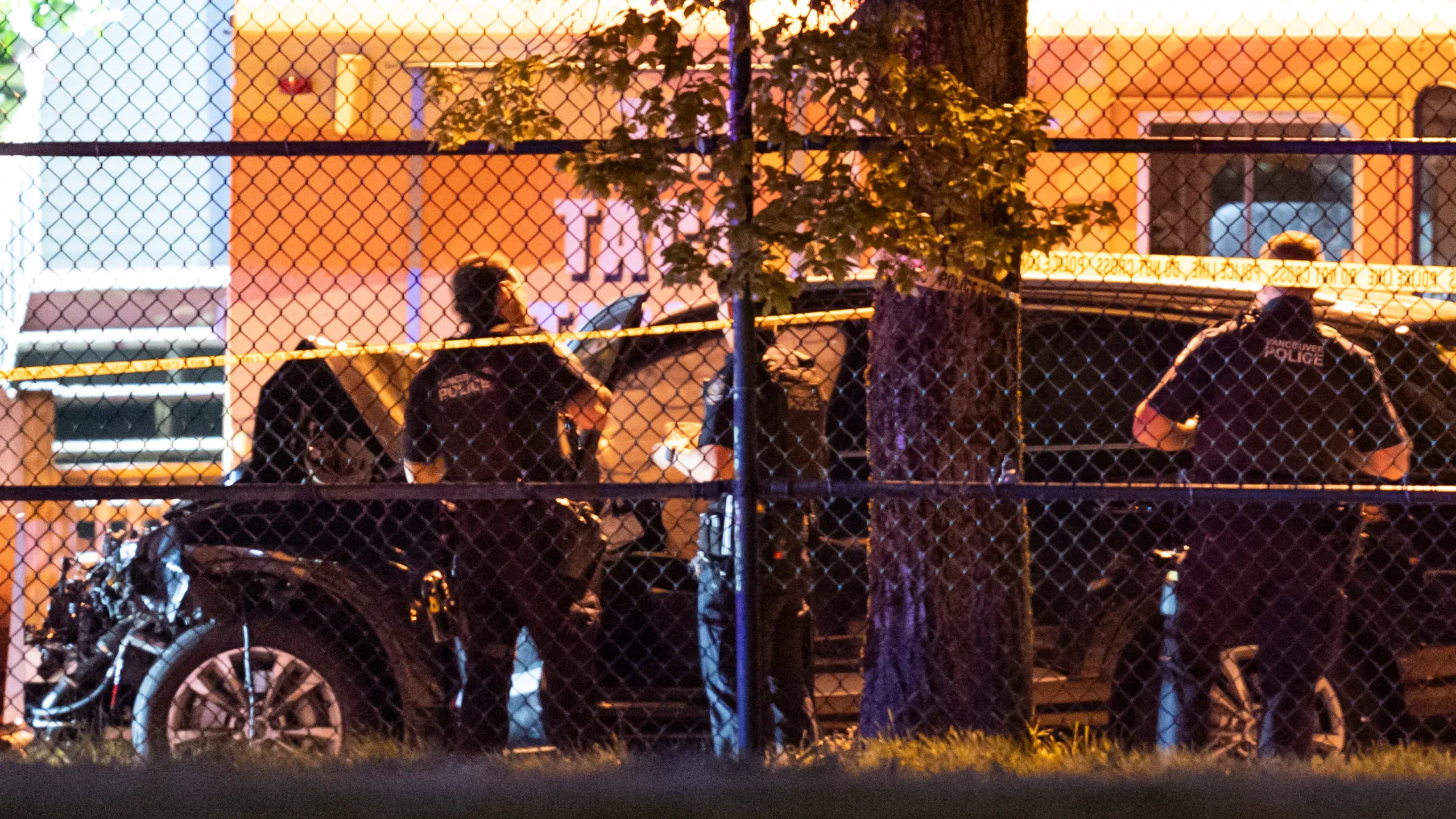Car Attack Leaves 11 Dead During Filipino Festival in Vancouver

A car attack leaves 11 dead and dozens injured at Vancouver’s Lapu Lapu Day Festival, a vibrant celebration of Filipino heritage.
The annual block party, held at East 41st Avenue and Fraser Street, was meant to honor Datu Lapu-Lapu, a 16th-century Indigenous Visayan leader who resisted Spanish colonization.
Instead, it became the scene of what Vancouver Police Interim Chief Steve Rai called “the darkest day in our city’s history.”
This tragedy, driven by a 30-year-old local man with a history of mental health issues, has shaken the Filipino Canadian community and sparked urgent conversations about public safety, mental health support, and urban festival planning.
As communities grapple with the aftermath, there is a growing call for systemic changes to ensure safety during public events.
A Community in Mourning
The Filipino Canadian community, numbering over 38,600 in Vancouver according to Statistics Canada’s 2021 census, is a cornerstone of the city’s cultural fabric.
Lapu Lapu Day, organized by Filipino BC, draws thousands to celebrate their heritage through music, food, and dance.
This year’s festival featured a performance by Filipino-American rapper Apl.de.ap of the Black Eyed Peas, amplifying its draw.
But joy turned to horror at 8:14 p.m. when a black Audi SUV plowed through the pedestrian-only zone, leaving a trail of devastation.
Eyewitness James Cruzat, a local business owner, described hearing a car engine rev followed by a “loud bang” he initially mistook for a gunshot.
Festivalgoers, including families with young children, were caught off guard as the vehicle barreled through, striking people and crashing into food trucks.
The car attack left 11 dead, including a 5-year-old girl and her parents, and injured more than 20 others, some critically.
A 1-year-old remains in critical condition, his father also hospitalized.
What makes this loss so piercing?
It’s the violation of a space meant for unity and pride.
The Filipino community, known for its resilience and contributions to Vancouver’s healthcare, education, and service sectors, was targeted in a moment of celebration.
As RJ Aquino, chair of Filipino BC, said at a vigil, “We are grateful for the support, but our hearts are broken.”
The emotional impact of this tragedy reverberates beyond the immediate loss, affecting the entire community’s sense of safety and belonging.
The Suspect and the Motive Puzzle
Kai-Ji Adam Lo, a 30-year-old Vancouver resident, faces eight counts of second-degree murder, with more charges expected.
Police have ruled out terrorism, citing Lo’s “significant history” of mental health-related interactions with law enforcement.
While a motive remains unclear, this car attack leaves questions about how someone known to authorities could commit such an act.
Lo was apprehended by bystanders before police arrived, a testament to the community’s courage amid chaos.
Consider the case of Maria Santos, a fictional Vancouver nurse who survived the attack.
Maria had been enjoying lumpia with her cousins when she heard screams.
She rushed to aid a wounded teenager, using her training to stem bleeding until paramedics arrived.
Her story mirrors the real-life heroism seen that night, but it also underscores a gap: why wasn’t Lo’s mental health history addressed before it escalated to violence?
Mental health crises don’t occur in a vacuum.
Vancouver, like many cities, struggles with underfunded mental health services.
A 2023 report by the Canadian Mental Health Association found that only 7% of British Columbia’s healthcare budget goes to mental health, despite rising demand.
This statistic isn’t just a number—it’s a signal of systemic neglect that may have contributed to this tragedy.
The case highlights the urgent need for comprehensive mental health reform to prevent future incidents.
Urban Safety Under Scrutiny
The car attack leaves Vancouver grappling with how to secure public events.
Unlike larger festivals with heavy police presence or vehicle barriers, Lapu Lapu Day relied on minimal security.
A wooden barrier was removed shortly before the incident, and no dedicated officers were on-site.
Police conducted a risk assessment and found “no known threats,” but this assumption proved catastrophic.
Compare this to the Vancouver Cherry Blossom Festival, where bollards and police patrols are standard.
After the attack, Mayor Ken Sim vowed to review event planning protocols.
But is retroactive action enough?
Urban planners argue for proactive measures, like permanent pedestrian zones or retractable bollards, to balance accessibility and safety.
For example, in a hypothetical redesign of Fraser Street, planners could install sensor-activated barriers that lower for emergency vehicles but block unauthorized cars during events.
The following table outlines key differences in security approaches between Lapu Lapu Day and other Vancouver festivals:
| Event | Security Measures | Police Presence | Vehicle Barriers |
|---|---|---|---|
| Lapu Lapu Day Festival | Minimal; wooden barrier removed pre-attack | None dedicated | None |
| Vancouver Cherry Blossom | Bollards, traffic control | Visible patrols | Permanent bollards |
+ Canadian Wildfire Season Off to an Early Start, Prompting Air Quality Alerts in Western Provinces

This car attack leaves cities worldwide on notice: public spaces are vulnerable.
From Nice to New York, vehicle-ramming incidents have exposed the fragility of urban gatherings.
Vancouver’s tragedy is a grim reminder that safety isn’t a luxury—it’s a necessity.
As cities reevaluate their safety protocols, lessons learned from this tragedy could lead to improved security measures at public events.
For more insights on urban safety, visit Urban Land Institute.
The Ripple Effects on Community Trust
Beyond physical injuries, the car attack leaves emotional scars.
The Filipino community, already navigating integration challenges, now faces heightened fear.
Vigils at Kensington Park and St. Mary the Virgin Church have drawn hundreds, with mourners leaving flowers and handwritten notes.
Yet, beneath the grief lies anger.
Why wasn’t the festival better protected?
Why did a known individual slip through the cracks?
Analogously, this incident is like a crack in a dam—small at first, but capable of eroding trust if not addressed.
Community leaders like Mable Elmore, a BC MLA, have called for unity, but rebuilding confidence requires action.
For instance, Filipino BC could partner with the city to fund trauma counseling, ensuring survivors like Maria Santos receive support.
Similarly, transparent investigations into the attack’s planning failures could restore faith.
The table below highlights proposed community recovery initiatives:
| Initiative | Purpose | Potential Partner |
|---|---|---|
| Trauma Counseling Program | Support survivors and families | Vancouver Coastal Health |
| Safety Task Force | Review and enhance festival security | City of Vancouver |
Rebuilding trust will be essential for the community to heal and move forward after this tragedy.

A Call for Systemic Change
This car attack leaves policymakers at a crossroads.
Mental health reform, urban safety upgrades, and community support aren’t just buzzwords—they’re imperatives.
Prime Minister Mark Carney, who attended a vigil, described the losses as “every family’s nightmare.”
His words resonate, but rhetoric must translate into funding and policy.
Increasing mental health budgets, as the Canadian Mental Health Association advocates, could prevent future crises.
Likewise, adopting European-style urban design, with car-free zones, could protect festivalgoers.
Reflect on another fictional example: the Reyes family, who lost their grandmother in the attack.
They now avoid public events, fearing another tragedy.
Their story, while imagined, reflects a real risk: communities retreating from civic life.
Preventing this requires investment in both infrastructure and trust.
Systemic change is necessary to ensure that such tragedies do not happen again and that communities feel safe in public spaces.
++ Toronto Jewelry Store Robbed for Third Time, Sparking Calls for Greater Security
Moving Forward with Resilience
The car attack leaves Vancouver changed, but not defeated.
The Filipino community’s strength, seen in their vigils and heroism, is a beacon.
As the city mourns, it must also act—bolstering mental health services, securing public spaces, and supporting survivors.
Lapu Lapu Day will return, not as a symbol of loss, but as proof of resilience.
This tragedy, reported by CBC News on April 27, 2025, demands more than condolences.
It’s a call to reimagine how cities protect and heal their people.
Vancouver can lead by example, turning pain into progress.
The car attack leaves 11 dead, but it must not leave a legacy of fear.
The path forward requires collective action and a commitment to ensuring safety and support for all community members.
